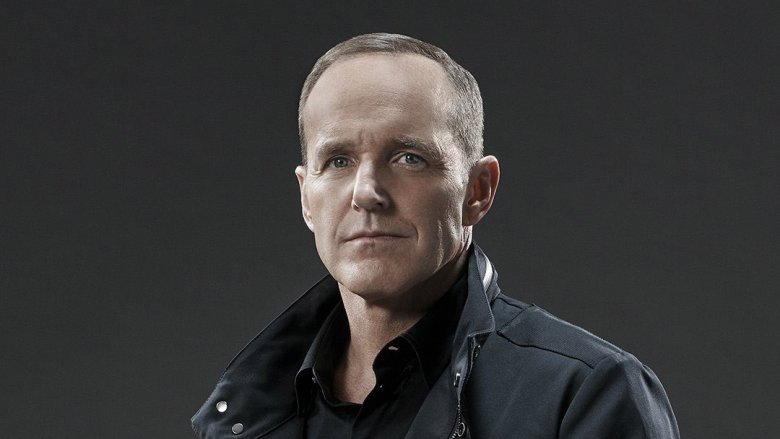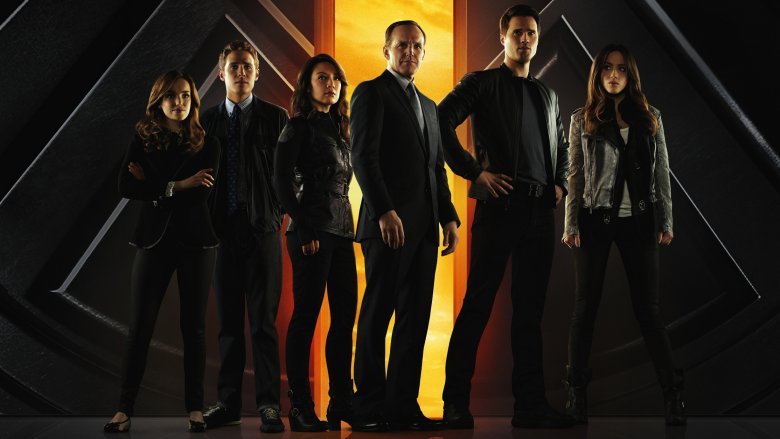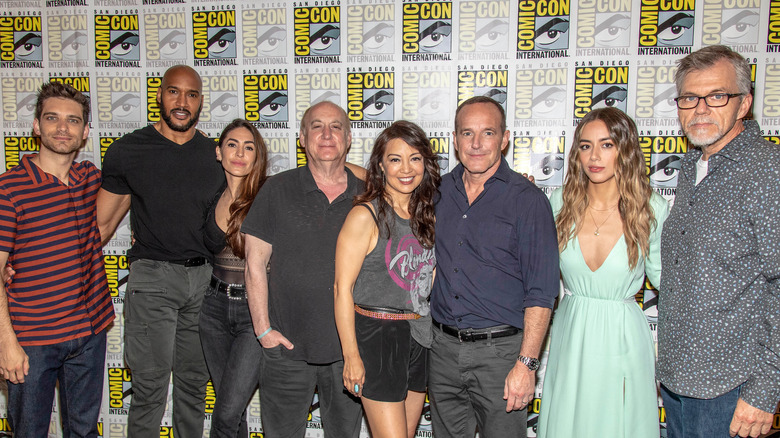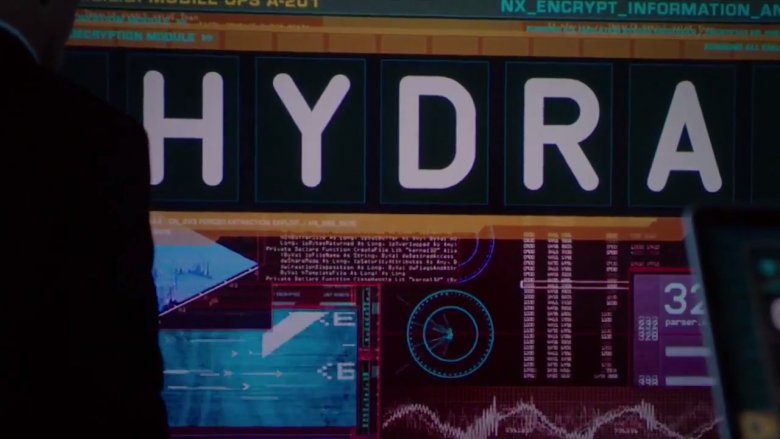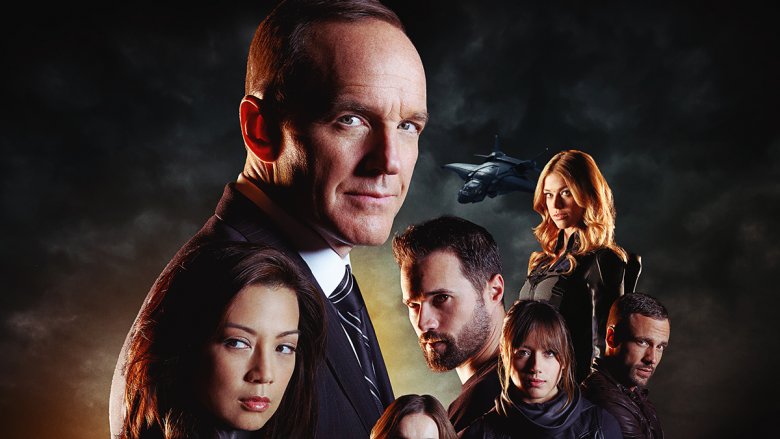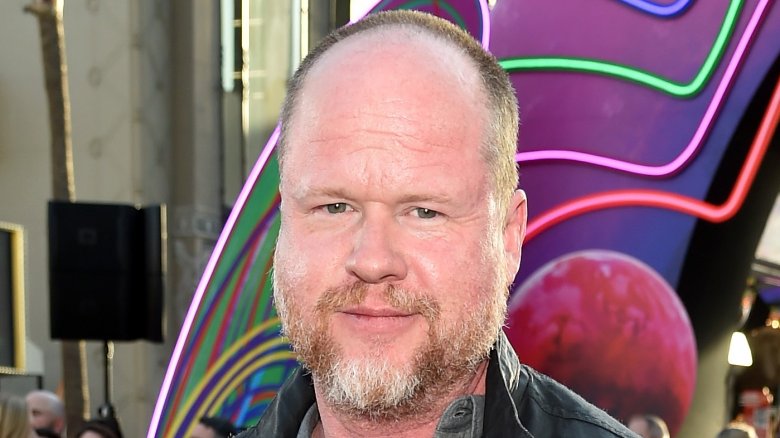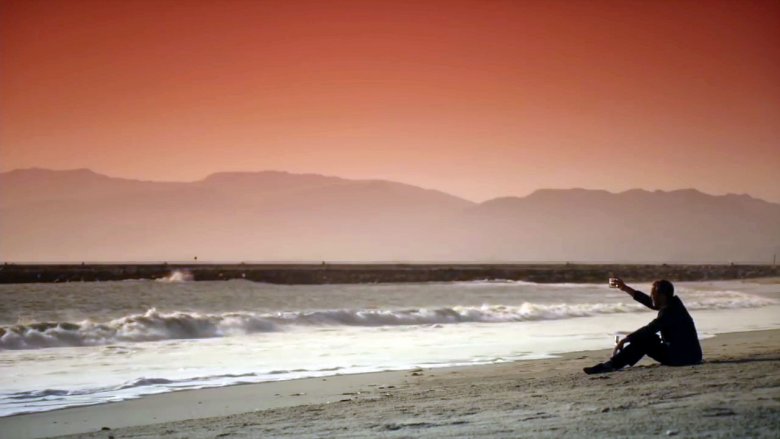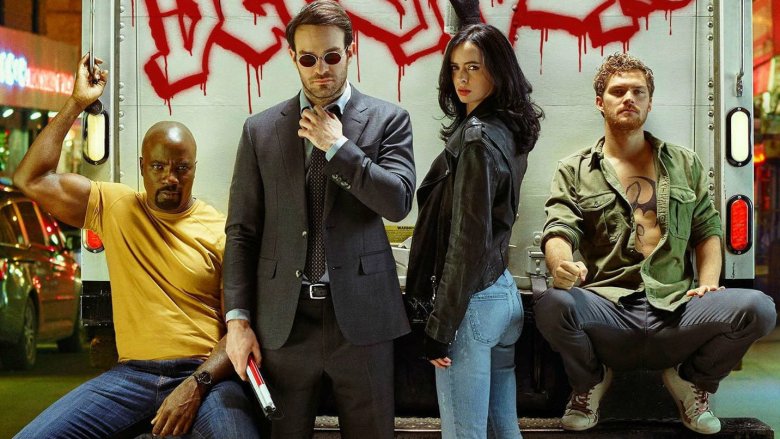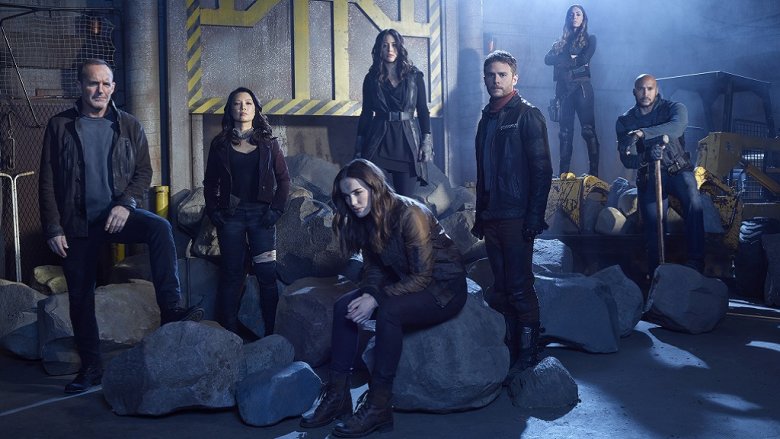Why People Stopped Watching Agents Of S.H.I.E.L.D.
Sometimes, the best shows on television come as complete surprises. Marvel's Agents of S.H.I.E.L.D. is one of them. During season one, viewers never would've guessed that The Avengers' small-screen spin-off would evolve into one of the most interesting, complex, and fun superhero shows ever made, but five seasons later, here we are.
Don't just take our word for it, though. WIRED thinks so, too. So does io9, The Atlantic, and Destructoid. And yet, Agents of S.H.I.E.L.D.'s ratings continue to fall. When S.H.I.E.L.D. first premiered, 11.9 million people tuned in, making it ABC's biggest debut in four years. The show's Season 5 debut only pulled in about a sixth of that, which is decent for the timeslot but marks a big, big decline since Agents started.
So, what happened? How did Marvel Studios' first television show go from a sure-fire hit to a niche product? There's not just one factor at play. Taken all together, here's how Agents of S.H.I.E.L.D. became the best show that nobody's watching.
Getting things off to a slow, slow start
Agents of S.H.I.E.L.D. might be great now, but it didn't start that way. Season 1 is pretty rough. While most critics seemed to like the first episode, things slowed down during Episode 2. Collider, for example, gave the second episode a C+ (the pilot got an A-), while The A.V. Club observed that the show already felt formulaic. By the eighth episode, the show was getting C and D grades on a weekly basis.
Fans seemed to agree. Look at the audience scores on Rotten Tomatoes. Fans gave Season 1 a 75% approval rating. By Season 4, that number was up to 91%. Obviously, many shows take time to find their voice, and it's rare for a program to hit the airwaves fully formed. Still, it feels like it took Agents of S.H.I.E.L.D. a lot longer to embrace its strengths than its peers, and it's no surprise that audiences grew bored in the meantime.
It's not all S.H.I.E.L.D.'s fault, of course. Agents came out right before Captain America: The Winter Soldier, which blew S.H.I.E.L.D sky high. Agents of S.H.I.E.L.D.'s production team had to both deal with that change and keep the movie's big plot twist a secret. As a result, many early episodes feel like they're treading water. Once Hydra entered the picture and Agents of S.H.I.E.L.D.'s real form emerged, things got a lot better — but by then, many viewers had already given up, never to return.
Lots of superpowers, but not many superstars
The first season of Agents of S.H.I.E.L.D. is filled with characters that fans know from the Marvel movies. Clark Gregg's Phil Coulson, who first appeared in Iron Man 2 and met the wrong end of Loki's staff in The Avengers, headlines the cast and is key to its initial mystery: why is Coulson still breathing? Cobie Smulders' Maria Hill, Nick Fury's second-in-command, drops by in the pilot to help kick things off. Nick Fury, played by Samuel L. Jackson himself, makes a cameo in Episode 2, while both he and Hill returned for the Winter Soldier-inspired season finale.
That's not all. In an early episode, Sif — you know, the badass lady Asgardian from Thor fame — shows up to help track down classic Marvel villain Lorelai. Chris Hemsworth appears via hologram, although that's pre-recorded footage. In Season 2, Captain America: The First Avenger's Peggy Carter shows up a few times before starring in her own show, while also name-dropping Dr. Faustus, one of Agent Carter's big bads.
That's a lot of characters that people already know and love, and they probably went a long way towards keeping casual Marvel fans interested in the show. As time went on, however, the steady flow of big screen guest stars slowed down. Recently, the biggest name from the movies that's shown up on Agents of S.H.I.E.L.D. is Ghost Rider. Not only are Nic Cage's Ghost Rider films not part of the Marvel Cinematic Universe (despite petitions to the contrary), but when a character is best known to casual viewers as the guy who pisses fire? Yeah, that's not a big draw.
The law of diminishing crossovers
Look, Agents of S.H.I.E.L.D.'s first season twist is huge. In Captain America: Winter Soldier, Steve Rogers learns that S.H.I.E.L.D. has been infiltrated and taken over by an evil organization known as Hydra. In response, he dismantles the whole thing. In the aftermath, not only do the agents of S.H.I.E.L.D find themselves on the wrong side the law, but they learn that one of their teammates, the seemingly straight-laced Grant Ward, has been working for the bad guys the whole time.
It's a great reveal, and for a while it seemed like Agents of S.H.I.E.L.D. was going to take Marvel's interconnected cinematic universe to a whole new level. The show never delivered on that promise. As S.H.I.E.L.D.'s creators note, replicating Winter Soldier's impact on the show would be difficult. "In terms of game-changers, that's hard to beat," executive producer Jed Whedon says.
Still, as time's gone on, the show has become less and less relevant to the overall MCU. A Season 2 episode helped pave the way for The Avengers: Age of Ultron, but it's a minor contribution. Seasons 3 and 4 had some thematic parallels to Civil War and Doctor Strange, but few direct connections. Now, S.H.I.E.L.D. got a lot better when it was finally allowed to tell its own stories, but anyone who is watching to keep tabs on the MCU's comings and goings probably bailed. At this point, Agents of S.H.I.E.L.D. is its own thing.
The curse of the Friday Night Death Slot
For Season 5, ABC gave Agents of S.H.I.E.L.D. a new time slot: Friday at 9:00 in the evening. If you know anything about television scheduling, then that should be a red flag: Friday nights are where television shows go to die.
In short, common wisdom dictates, barely anyone (in the all-key 18-to-34 demographic, anyway) watches television on Friday. Instead, they're spending time with friends and loved ones, celebrating the impending weekend. That makes a Friday time slot a great place for networks (especially Fox) to dump shows that they perceive as risks.
Dollhouse and Firefly, which were both made by S.H.I.E.L.D. creator Joss Whedon, landed there, and they famously didn't last too long. Ditto cult classics like Wonderfalls, Dark Angel, Happy Endings, and many others, all of which tanked in the ratings after moving to Friday nights. Now, there are exceptions. Cable reality shows do relatively well on Fridays, especially when the economy is bad. For its part, S.H.I.E.L.D.'s ratings seem to be holding steady compared to its previous time slot. Still, those numbers weren't great to begin with, and putting a show on when fewer people are watching isn't a great way to get viewers, no matter how good the actual content is.
What is this show about, again?
One of the most fun things about Agents of S.H.I.E.L.D. is that the show intentionally reinvents itself every season — sometimes, multiple times per season. Even if you're a dedicated viewer, you never know what to expect.
By the end of Season 1, S.H.I.E.L.D. was a criminal organization, Grant Ward was a traitor, and it wasn't clear where our heroes stood. Season 2 introduced an Inhuman civil war and transformed Skye, arguably one of the show's two leads, into a bonafide superhero. Season 3 delved into a parallel dimension, killed off a central character, and ended with a three-month time jump. Season 4 threw magic, a paranoid thriller by way of Life-Model Decoys, and a virtual reality dystopia into the mix. Season 5 took the crew to outer space — and back again.
This is all part of the plan, of course. Executive producer Jed Whedon says that Season 5's sci-fi setting "was a decision based on all the things that we had already done and the things that we have not yet done," and that "for a show where we've tried to reinvent it every year, this felt like a good stretch." Still, while all of these changes are fun for the committed fan, they're probably not great for casual or new viewers. Agents of S.H.I.E.L.D started with a simple premise: there are people with superpowers, and there's an intelligence agency that monitors them. Now it's much more complicated, making the barrier to entry sky-high.
The Whedon factor (or lack thereof)
In July 2012, just a couple of months after The Avengers rocked everyone at movie theaters, word started to spread that Marvel would be making a small-screen spin-off. A month later, Disney CEO Bob Iger revealed that not only was the show real, but that The Avengers' director, Joss Whedon, would develop it himself.
It was huge news. Not only was The Avengers a massive hit, but Joss Whedon made his name as the creator of beloved genre shows like Buffy the Vampire Slayer, Angel, and Firefly, and has a rabidly dedicated fanbase of his own. Agents of S.H.I.E.L.D. seemed poised to be Whedon's triumphant return to the medium that made him famous, and in the lead up to its premiere, Whedon said all the right things. He directed the show's pilot, and promised that he was putting his personal touch on "every script, every story."
Then, Whedon got busy with The Avengers: Age of Ultron and passed the show off to his brother, Jed, and his sister-in-law, Maurissa Tancharoen. Aside from the pilot, Agents of S.H.I.E.L.D. bears very little of Whedon's personal style. In the long run, that might've been for the best. Viewers had major gripes with Black Widow's storyline in Age of Ultron, while Whedon's ex-wife recently accused the filmmaker of using his feminist reputation for less-than-savory ends. His fans reacted accordingly. In hindsight, Agents of S.H.I.E.L.D. might've dodged a bullet — but anyone who first tuned in early on to get their Joss Whedon fix probably didn't stick around. The second coming of Firefly this ain't.
Cancellation isn't a matter of if, but when
There's tons of great TV out there. Why waste your time with something that's just going to get cancelled just when you're getting invested?
As Agents of S.H.I.E.L.D.'s ratings have declined, the show's future seems more and more precarious. With Season 5, its fate seems all but certain. First, ABC moved the show to Friday nights. Second, in 2017, word leaked that Disney forced ABC to order a fifth season of S.H.I.E.L.D even though many ABC execs wanted to put the show out to pasture. S.H.I.E.L.D.'s producers seem to think that cancellation is likely, too. Recently, they've been talking about how the fifth season finale is being written and produced as a series finale, while ABC's higher-ups remain cagey about S.H.I.E.L.D's long-term prospects.
None of that looks good. Now, to be fair, in S.H.I.E.L.D.'s case, the ratings aren't everything. Disney probably sees the show's brand synergy as a major boon, and the show does a lot better when you take time-shifted viewing (i.e. DVR recordings) into account. Still, there doesn't seem to be much reason for new viewers to jump on board. By all indications, Agents of S.H.I.E.L.D. is on its way out. If you're really interested in giving it a shot, you can always binge watch it later.
Enough with the superheroes, already
When Agents of S.H.I.E.L.D. came out in 2013, it was one of two live-action superhero shows on the air. Arrow might've beaten S.H.I.E.L.D. by a year, but it wasn't (at the time) part of a bigger, interconnected universe. Besides, Oliver Queen is a DC character, not a Marvel one. If you wanted to enjoy the MCU on the small screen, Agents of S.H.I.E.L.D. was your only option.
Since then, we've gotten Agent Carter, Inhumans, Daredevil, Jessica Jones, Iron Fist, Luke Cage, The Defenders, The Punisher, Runaways, Cloak and Dagger, The Gifted, and Legion — and those are just the Marvel shows. Throw in DC properties like The Flash, Legends of Tomorrow, Supergirl, Black Lightning, Gotham, Constantine, Krypton, and Powerless, superhero-adjacent properties like iZombie, Preacher, and Lucifer, third-party superheroes like The Tick and Wynonna Earp, and all of DC and Marvel's various animated series and, well, you've got a lot of superheroes.
To look at it another way, in the 2015-2016 television season, the five major networks and Netflix aired 172 hours worth of superhero programming. That'd take you a week solid to watch all the way through, and things have only gotten busier since then. Agents of S.H.I.E.L.D. used to be one of the few places where you could get your weekly superhero fix. Now, tights and spandex are everywhere. Choice is great, but it also makes Agents of S.H.I.E.L.D. less special. With all of that competition, it's no wonder that viewership fell off. There's just too much to watch.
In the end, it doesn't really matter
Finally, here's the big one: as far as the Marvel Cinematic Universe is concerned, Agents of S.H.I.E.L.D. doesn't really count. It did, once. Agents of S.H.I.E.L.D. introduced viewers to the Kree before they popped up in Guardians of the Galaxy and brought the Inhumans into the fold before Marvel axed their feature film.
It doesn't anymore. Agents of S.H.I.E.L.D. and the rest of Marvel's television shows are afterthoughts in the MCU. They're fun, but they don't matter. Mostly, that's due to studio politics. In various interviews, Joss Whedon admitted that the TV shows always played second fiddle to Marvel's movies. Since Agents of S.H.I.E.L.D. came out, things have only gotten worse. These days, Marvel's television and film units are run by entirely different people, and they don't necessarily play nice with one another.
The Agents of S.H.I.E.L.D. characters won't appear in The Avengers: Infinity War, the giant crossover movie that's bringing practically everyone else together. At this point, Agents of S.H.I.E.L.D. has to survive on its own merits, not its ties to some bigger franchise. Thankfully, when a show is as good as this one, that's pretty easy to do.
